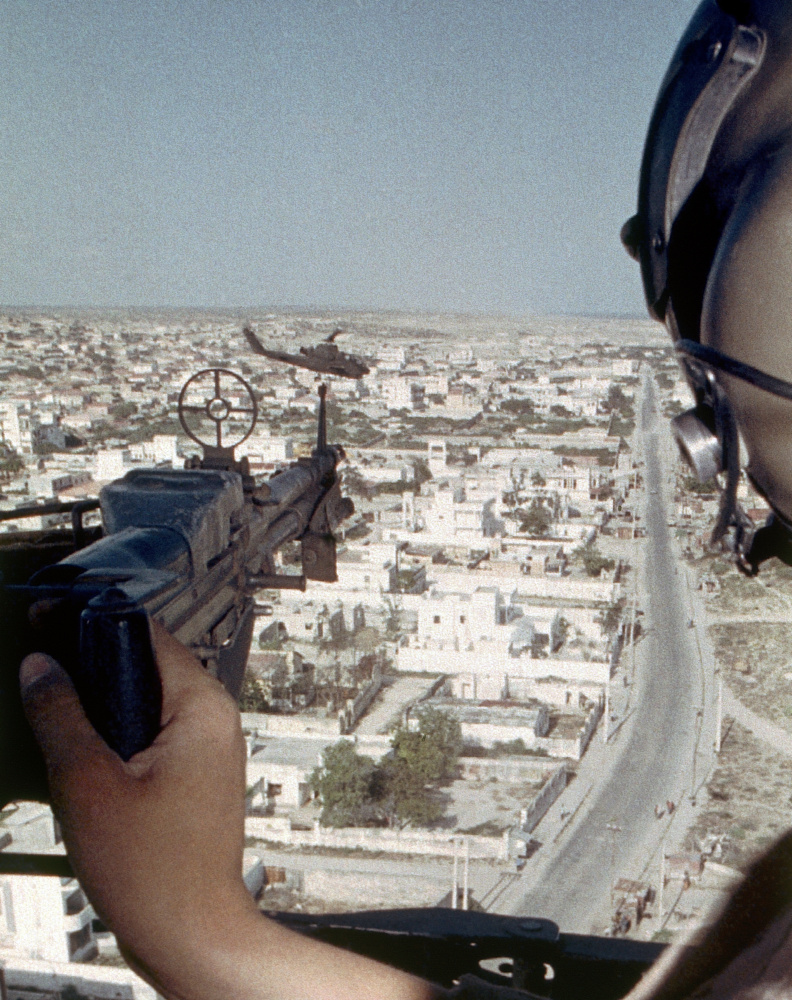The helicopter carrying Kyle Milliken, a native of Falmouth, landed in Barii, a remote area west of Mogadishu, the capital of war-torn Somalia, on Friday.
The target was a compound of al-Shabab militants, but Milliken and his Navy SEAL team were not charged with attacking the al-Qaida-linked extremists, according to The Washington Post. The elite team was there to provide advice and support to a group of Somali National Army soldiers; they’d delivered them to the remote area in American aircraft.
According to U.S. military reports, the Americans hung back. Milliken, a former Cheverus High star athlete with curly hair and a bright smile, was a chief special warfare officer, a rating that requires a six-year enlistment obligation. Milliken had nearly tripled that obligation, enlisting in 2002 and heading off to training in Illinois less than three weeks after the Fourth of July.
No time of day was given for the covert operation Friday, but it is typically the practice of Navy SEALs to work in nighttime. The American military had been given the authority for unilateral, counterterrorism ground and airstrikes against al-Shabab several weeks before by President Trump, but this was what the U.S. Africa Command called an “advise and assist” mission.
As a firefight broke out – according to wire reports, an al-Shabab spokesman claims U.S. forces launched an assault on one of the group’s bases – the SEALs became targets.
Milliken, at 38 a veteran with four Bronze Stars, was killed and two other Americans wounded. U.S. officials said Shabab militants were believed to have died as well, although no numbers were available.
Milliken’s death was the first American military death in Somalia since 1993 and it unfolded only 40 miles from the site of one of America’s most notable military tragedies, during which two men from Maine died: Army Staff Sgt. Thomas Field of Lisbon and Army Master Sgt. Gary Gordon of Lincoln, who were part of an operation using helicopters to capture Somali warlord Mohamed Farrah Aidid.
During the so-called “Black Hawk Down” mission in 1993, two UH-60 Black Hawk helicopters were shot down during a raid to capture the militant leader, trapping American soldiers on the ground. In an extended battle with Somali militiamen, 18 Americans died. At that time it was America’s most dramatic and deadly military mission since Vietnam and it became the subject of both a book by journalist Mark Bowden and a 2002 film.
The administration of President Clinton, which had ordered that raid, was heavily criticized for the bungled operation, and U.S. troops were withdrawn from Somalia as a result. Clinton’s defense secretary, Les Aspin, resigned.
Milliken’s death comes just weeks after Trump’s directive to expand military operations in Somalia. Last month, the U.S. said it was sending dozens of regular troops to Somalia in the largest such deployment there in about two decades, The Associated Press reported. The U.S. in recent years has sent a small number of special operations forces and counterterrorism advisers to Somalia and conducted a number of airstrikes. Trump’s order declaring parts of Somalia areas of “active hostilities” has been described as relaxing some of the rules put in place by the Obama administration to prevent civilian casualties during counterterrorism strikes.
Trump issued a similar decision for Yemen after taking office. A raid in Yemen on Jan. 29 resulted in the death of another Navy SEAL, William “Ryan” Owens. A $75 million aircraft was also lost in that raid and more than 20 civilians were killed. Owens’ father has been extremely critical of that mission.
On Saturday, as Maine’s political leaders lauded Milliken’s accomplishments, his family asked for privacy as they begin the grieving process.
Mary Pols can be contacted at 791-6456 or at:
Twitter: MaryPols
Send questions/comments to the editors.



